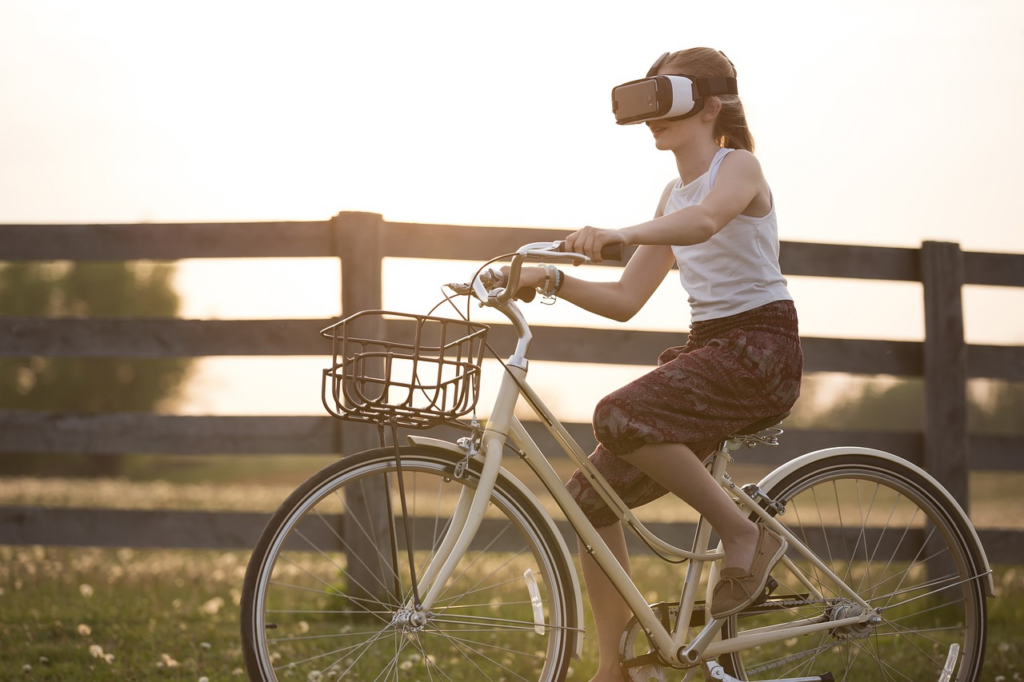Advertisement
In the digital age in which we live, entertainment is taking on new forms and dimensions, shaped by the preferences and behaviors of Generation Z, those born roughly between the mid-1990s and 2010. This demographic group, created amid the explosion of technology and social media, is leaving its mark on the digital entertainment landscape in significant ways.
The Power of Social Media Platforms
In the contemporary landscape, social media platforms have emerged as powerful centers of entertainment, interaction and expression for individuals of all ages, but especially for Generation Z. These platforms, such as TikTok, Instagram, Snapchat and many others, have transcended their initial purpose of connecting people, becoming ecosystems rich in content and entertainment opportunities.
Advertisement
Connecting and Sharing
One of the most distinctive features of social media is its ability to facilitate connections between people from different parts of the world. Generation Z, raised in an increasingly globalized and interconnected world, deeply values this ability to connect with friends, family and even strangers who share similar interests.
What's more, social media makes it possible to share content easily and instantly. This is not just limited to photos and messages, but also includes videos, music, memes and a multitude of other entertainment formats. Generation Z is known for its creativity and originality, and social media platforms provide the perfect space for them to showcase and share their talent with the world.
Advertisement
Ephemeral Content and Engagement
Platforms like Snapchat have popularized the concept of ephemeral content, where photos and videos disappear after a certain period of time. This format adds a layer of authenticity and spontaneity to the content, encouraging users to share moments from their daily lives in a freer and more relaxed way.
In addition, social media is highly interactive, allowing users to comment, like and share other people's content. This creates a sense of community and belonging, where users feel part of something bigger than themselves. For Generation Z, who highly value connection and engagement with others, this interactivity is an essential part of the social media experience.

Discovery and Trends
Social media platforms also play a crucial role in discovering new trends in culture, music, fashion and much more. Through recommendation algorithms and viral sharing, content can spread quickly and reach a massive audience in a matter of hours or even minutes.
For Generation Z, which is constantly seeking new experiences and ways of expressing itself, social media serves as an endless source of inspiration and influence. Influencers, content creators and brands compete for space on users' timelines, creating a dynamic and ever-changing environment of creativity and innovation.
Streaming and Personalization
In the age of on-demand digital entertainment, streaming services have become the main means of content consumption for Generation Z and beyond. Platforms such as Netflix, Disney+, Spotify and Twitch offer a wide range of entertainment options, from movies and series to music and live broadcasts.
What makes these services so captivating for Generation Z is the combination of streaming and personalization, which provides a highly individualized and tailor-made entertainment experience.
Variety and On-Demand Access
Streaming services offer users a virtual library of content, giving them instant access to a huge variety of movies, series, music and other types of media. This represents a radical change from traditional entertainment models, where viewers were limited to TV programming schedules or the selections available in physical stores.
Generation Z, accustomed to the convenience and immediacy of technology, values this freedom of choice and control over what they consume. They no longer have to wait for a specific time in the schedule to watch their favorite show; instead, they can access it at any time and from anywhere, using only a device connected to the internet.
Recommendation and Personalization Algorithms
The real differentiator of streaming services lies in the ability to personalize the entertainment experience according to each user's individual preferences.
Recommendation algorithms analyze a user's viewing or listening history, as well as their declared tastes and browsing behaviors, to suggest content that might interest them.
This personalization goes beyond simply suggesting content that is popular or similar to what the user has already watched. Streaming algorithms are increasingly sophisticated, taking into account a wide range of factors, such as genre, theme, cast, director, music or even the emotional mood of the content. This results in highly accurate and relevant recommendations, which significantly increase the likelihood of users discovering and liking new content.
Immersive and Personalized Experiences
In addition, some streaming services are exploring new forms of personalization that go beyond simply recommending content. For example, some platforms are experimenting with virtual and augmented reality technologies to create more immersive and interactive viewing experiences.
These experiences can include elements such as dynamic soundtracks that adapt to the mood or pace of the content, interactive camera choices that allow viewers to change perspective during a scene and even branching storylines that unfold differently based on the viewer's decisions.
Gaming: More than Just a Pastime
Video games have long since ceased to be just a pastime and have become an integral part of Generation Z's culture and identity. For these young people, gaming goes far beyond simply playing; it's a way of expressing themselves, connecting with others and even competing on a global stage.

Expression and Creativity
For many young people, video games offer a platform to express their creativity and imagination in ways that other entertainment media cannot. Games like Minecraft and Fortnite allow players to build and customize their own virtual worlds, creating digital works of art that reflect their individuality and style.
In addition, many modern games offer content creation tools that allow players to develop their own levels, mods and even complete games. This not only expands the possibilities for creative expression, but also creates a community of dedicated players who share and collaborate on creative projects.
Socialization and Community
Gaming also serves as a powerful means of socialization and community building for Generation Z. Multiplayer online games offer opportunities for young people to connect with friends and strangers from all over the world, working together to achieve common goals or competing in exciting confrontations.
In addition, platforms such as Twitch and YouTube Gaming allow gamers to broadcast their gaming sessions live, interacting with a global audience of viewers and building a community around their content. These streamers become influential and inspiring figures for many young people, shaping trends and behaviors within the gaming community.
Competition and eSports
Competitive gaming, or eSports, has emerged as a multi-billion dollar global industry, attracting millions of spectators and professional players around the world. For Generation Z, eSports is not only a form of entertainment, but also a legitimate career aspiration.
eSports tournaments and events, such as the League of Legends World Championship and the Fortnite World Cup, offer significant cash prizes and global recognition for the most talented players. In addition, eSports teams and organizations have become powerful brands, sponsored by major companies and enjoying a dedicated fan base.
Influencers and Content Creators
In the digital age, influencers and content creators have emerged as leading figures, exerting a significant influence on Generation Z. These individuals not only captivate audiences with their charisma and talent, but also shape cultural, behavioral and consumer trends. Let's explore more about how influencers and content creators are redefining entertainment for Generation Z.
Identification and Authenticity
One of the reasons why influencers and content creators are so popular with Generation Z is their ability to relate to their audience in an authentic and genuine way. Unlike traditional celebrities, many influencers began their careers by sharing their daily lives and personal experiences on social media.
This authenticity creates a sense of intimacy between the influencer and their followers, allowing young people to identify and connect with them on a deeper level. For Generation Z, who value authenticity and transparency, this is essential in building lasting relationships with their digital idols.
Creativity and Diversity of Content
Influencers and content creators are known for their creativity and versatility in producing different types of content for their platforms. From daily vlogs and make-up tutorials to comedy sketches and travel videos, these creators are able to appeal to a wide variety of interests and tastes.
In addition, influencers often collaborate with each other on creative projects, further expanding the diversity and quality of content available to Generation Z. These collaborations not only provide additional entertainment, but also foster a sense of community and collaboration between influencers and their followers.
Endorsement and Impact on Purchasing Decisions
Influencers have a significant impact on Generation Z's purchasing decisions. Many young people rely on influencers' recommendations and analysis when deciding which products to buy, where to eat or even what lifestyle to adopt.
Brands recognize the power of influencers as sales catalysts and, as a result, often collaborate with them on marketing and advertising campaigns. These partnerships can be highly lucrative for influencers, while giving brands direct access to a highly engaged and influential audience.
Responsibility and Social Impact
With great power comes great responsibility, and influencers are increasingly aware of the impact they have on their followers, especially Generation Z. Many influencers use their platform to promote social and environmental causes, raising important issues and encouraging positive change.
In addition, influencers often serve as role models for Generation Z, influencing not only their purchasing decisions, but also their attitudes towards health, well-being and social inclusion.
Virtual and Augmented Reality
Virtual Reality (VR) and Augmented Reality (AR) are at the forefront of the technological revolution, offering immersive and interactive experiences that go beyond the limits of the physical world.
For Generation Z, which has grown up in an increasingly digital environment, these technologies represent an exciting opportunity to explore new worlds, create meaningful connections and expand the horizons of the imagination. Let's delve deeper into how Virtual and Augmented Reality are transforming the entertainment and experience of Generation Z.
Virtual Reality
Virtual Reality transports users to fully digital and immersive environments, where they can interact with objects and characters as if they were physically there. For Generation Z, who grew up playing video games and consuming digital content, Virtual Reality represents a natural extension of this experience, offering a more immersive and engaging way to explore virtual worlds.
Virtual Reality games, such as Beat Saber, Half-Life: Alyx and The Walking Dead: Saints & Sinners, offer exciting and immersive experiences that challenge the boundaries of reality and imagination. In addition, Virtual Reality applications are also being used in areas such as education, training and therapy, providing new forms of learning and intervention.
Augmented Reality
Augmented Reality, on the other hand, merges the physical world with superimposed digital elements, creating a hybrid experience that enriches and expands the perceived reality. For Generation Z, who are used to mobile and interactive technology, Augmented Reality offers a unique way of interacting with the world around them in innovative and engaging ways.
Augmented Reality apps such as Pokémon GO, Snapchat and IKEA Place allow users to see and interact with virtual objects in their physical environment, whether it's hunting virtual creatures, trying out furniture in their living room or applying augmented reality filters to their selfies. These experiences add an extra layer of fun and creativity to everyday life, expanding the possibilities of interaction and expression for Generation Z.

Potential for Entertainment
Both technologies have significant potential to transform the entertainment landscape for Generation Z. With Virtual Reality, users can immerse themselves in completely new virtual worlds, take part in exciting adventures and interact with characters and environments in unprecedented ways.
With Augmented Reality, users can bring digital elements into the real world, creating interactive and immersive experiences that transcend the limits of the traditional screen.
What's more, both Virtual and Augmented Reality offer opportunities for creating original and engaging content, allowing creators to explore new ways of telling stories, building communities and captivating audiences. As technology continues to evolve and become more accessible, we can expect Virtual and Augmented Reality to play an increasingly important role in the entertainment of Generation Z and beyond.
Redefining the digital entertainment landscape
Generation Z is redefining the digital entertainment landscape, driven by their natural affinity with technology, their creativity and their need for personal expression. Social media platforms, streaming services, gaming, influencers and immersive technologies are among the key trends and preferences that are shaping the future of entertainment for this demographic.
As we continue to move into the digital age, it is essential for companies and content creators to understand and adapt to the needs and interests of Generation Z, ensuring that they can continue to attract and engage this dynamic and influential audience.
See also: Motion Sensor: 10 game options for exercising at home
March 29, 2024

She has a degree in Languages - Portuguese/English, and is the creator of the Escritora de Sucesso website. As a writer, she seeks to expand everyone's knowledge with relevant information on various subjects. At SoMuchToSayToday, she brings news and content ranging from entertainment to the country's economic situation.



